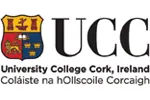We're moving! This site will be relocating to goingto.university in 2026. Please update your bookmarks to the new address.


| The award | How you will study | Study duration | Course start | Domestic course fees | International course fees |
|---|---|---|---|---|---|
| BE (Hons) | Full-time | 4 years | September | EU 3000 | EUR 3000 |
Overview
In an era of unprecedented pressure on resources, energy engineering is crucial to address some of the world's greatest challenges, namely how to meet the electricity, heating and transport energy needs of the world's growing population while reducing human impact on the climate with innovative, sustainable engineeringsolutions.
Through a combination of solid engineering fundamentals covered in the first two years of the course (eg thermodynamics, fluids, and electrical systems) and advanced energy engineering topics covered in the final two years (including power electronics, control systems, wind, solar photovoltaic and ocean energy, energy demand management and energy policy), graduates of theEnergy Engineering coursewill be well-equipped to source, design, convert, transmit and supply useful energy to meet the world's present and long-term needs.
Course Details
Year 1 Modules:
Core (All 5 credit modules)
MA1011 & MA1012Mathematical Methods for Engineers I & II (5 credits each);
CM1001Chemistry for Engineers;
CE1005Engineering Computation and Problem Solving;
ME1001Engineering Materials;
AM1021 & AM1022Mechanics I and II (5 credits each);
PY1006 & PY1007Physics for Engineers I and II (5 credits each);
PE1006Professional Engineering Communication & Ethics;
NE1001Introduction to Energy Engineering
Electives
CE1003Engineering Structures (5 credits);
EE1005Electrical & Electronic Systems (5 credits);
PE1003Introduction to Process and Chemical Engineering (5 credits)
Year 2 Modules:
Numerical Methods and Programming; Solid and Structural Mechanics; Fluids; Linear Circuit Analysis; Non-Linear Circuit Analysis; Signals and Systems; Power Engineering; Engineering Thermodynamics; Heat Transfer
Years 3 Modules:
Construction Project Management; Hydraulics; Power Electronic Systems; Electromechanical Energy Conversion; Control Engineering; Mechanical Systems; Applied Thermodynamics and Work Transfer; Primary Energy Engineering; Energy in Buildings; Energy Engineering in the Commercial World and Work Placement; Sustainable Energy; Transportation and Energy
Year 4 Modules:
Core
Power Electronics, Drives and Energy Conversion; Control Engineering; Electrical Power Systems; Energy Systems Modelling; Entrepreneurial Business Start-Ups; Biomass Energy; Energy Systems in Buildings; Computer Aided Design (Heating, Ventilation and Air Conditioning); Research Project
Electives
Wind Energy; Ocean Energy; Photovoltaic Systems
See the College Calendar for more detailed information on the Programme and the Book of Modules for a more detailed description of Programme Modules.
Fact File
Course Code: CK600NRG
Course Title: Energy Engineering
College: Science, Engineering and Food Science
Duration: 4 Years
Teaching Mode: Full-time
Qualifications: BE (Hons)
NFQ Level: Level 8
Costs: Full-time EU/EEA/Swiss State undergraduate students may be exempt from paying tuition fees. The State will pay the tuition fees for students who satisfy the Free Fees Criteria. In 2016/17 the Student Contribution Charge will be EUR 3,000 and the Capitation Fee will be EUR 165.
2017 Entry Requirements: H5 in one subject, H4 in Mathematics or Applied Mathematics (if the H4 is in Applied Mathematics, a H6 in Mathematics is also required); O6/H7 passes in either three or four other subjects in the Leaving Certificate in Irish, English, Laboratory Science subject (Biology, Chemistry, Physics, Physics with Chemistry (joint) or Agricultural Science) or Technology, and one other subject recognised for entry purposes.
Entry Points: 2016: 490. Points may vary from year to year.
Course Practicalities
Expected lecture hours:Lectures usually take place from 9am to 1pm, Monday to Friday, with a small number of lectures taking place in the afternoon.
Expected lab/practical hours:Laboratory classes and individual study are normally scheduled for the afternoon.
Field trips:Fieldwork and site visits are organised as necessary.
Assessment
Written exams will take place before Christmas and in May. Not all modules will have formal examinations. Many modules use other types of assessment.
The final degree grade is based on a weighted combination of marks from Years 3 and 4.
Application Procedure
EU Applicants: Application to Year 1 of the degree programme is made directly through the Central Applications Office (CAO). Applicants should apply online at www.cao.ie. The normal closing date for receipt of completed applications is 1st February of the year of entry.
Non-EU Applicants
Mature Applicants: Application is made through the CAO (www.cao.ie) and the closing date for receipt of completed applications is 1st February of the year of entry.
Further Contact Information
Julie Holland
T: +353 (0)21 490 3980
W:http://www.ucc.ie/en/energyeng/
2017 Entry Requirements: H5 in one subject, H4 in Mathematics or Applied Mathematics (if the H4 is in Applied Mathematics, a H6 in Mathematics is also required); O6/H7 passes in either three or four other subjects in the Leaving Certificate in Irish, English, Laboratory Science subject (Biology, Chemistry, Physics, Physics with Chemistry (joint) or Agricultural Science) or Technology, and one other subject recognised for entry purposes.
Entry Points: 2016: 490. Points may vary from year to year.
Contact University College Cork (UCC) to find course entry requirements.
Below are some suggested courses at other providers that you may also be interested in:
Advanced Bachelor of Bioinformatics Advanced Diploma, Bachelor Degree
Howest University of Applied Sciences
Find out moreFashion Journalism Certificate of Attendance
IIFM | Italian Institute of Fashion Management
Find out moreInformation and Communications Engineering (Business Engineering) MSc
University of Klagenfurt
Find out moreIf you do not meet the entry requirements for this course then consider one of these courses from another institution:
There are 338 other courses listed from University College Cork (UCC). A selection of these are displayed below:
Join the StudyLink email list and never miss a chance to turn your study abroad dreams into reality!

Find out more about studying in Ireland